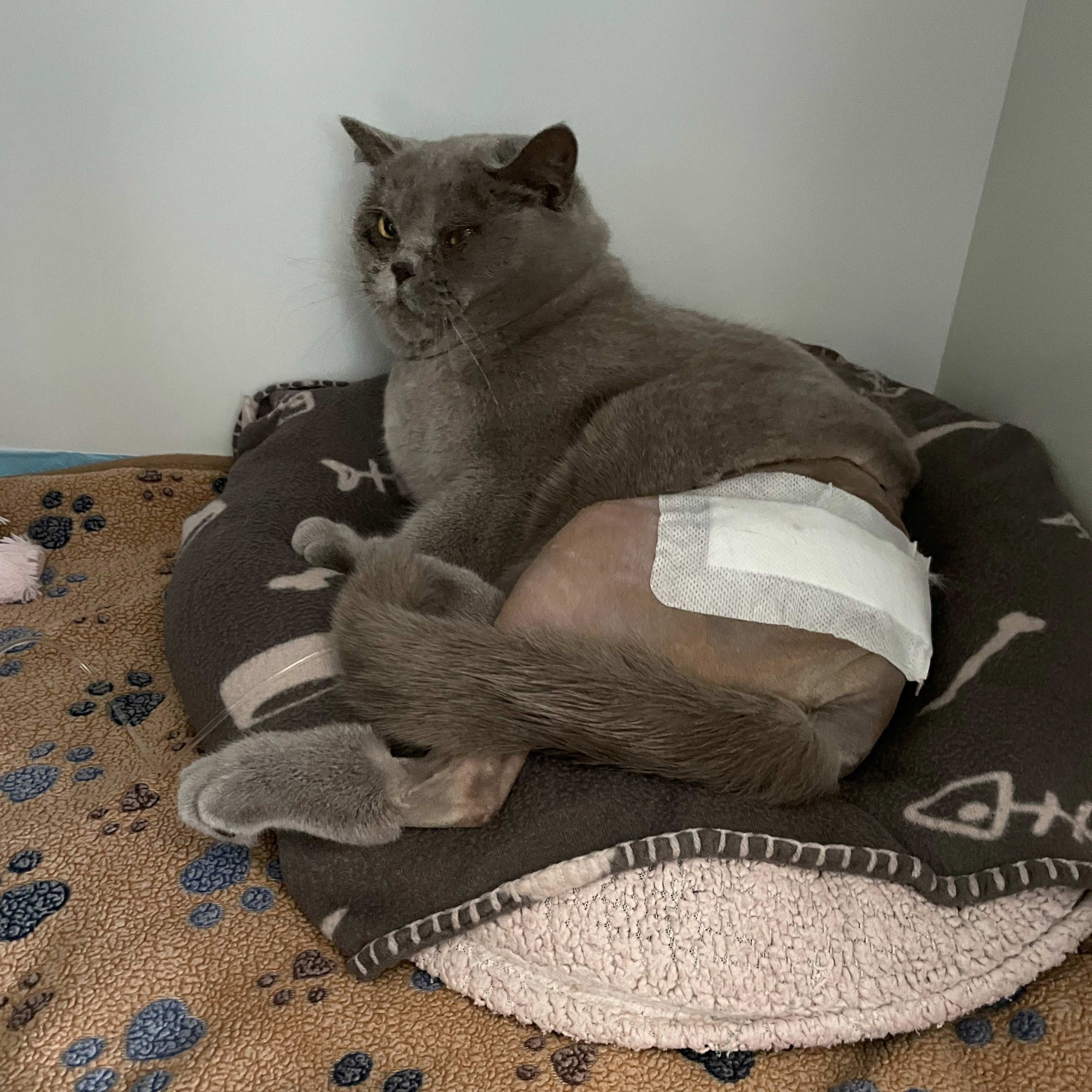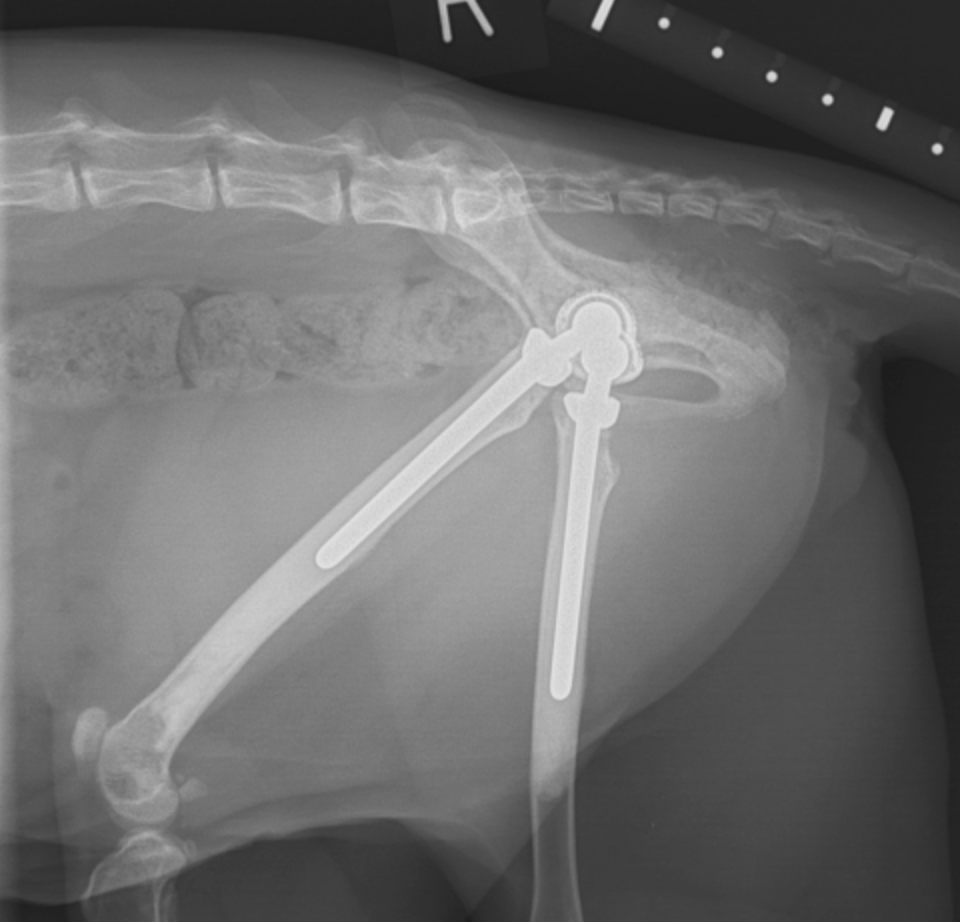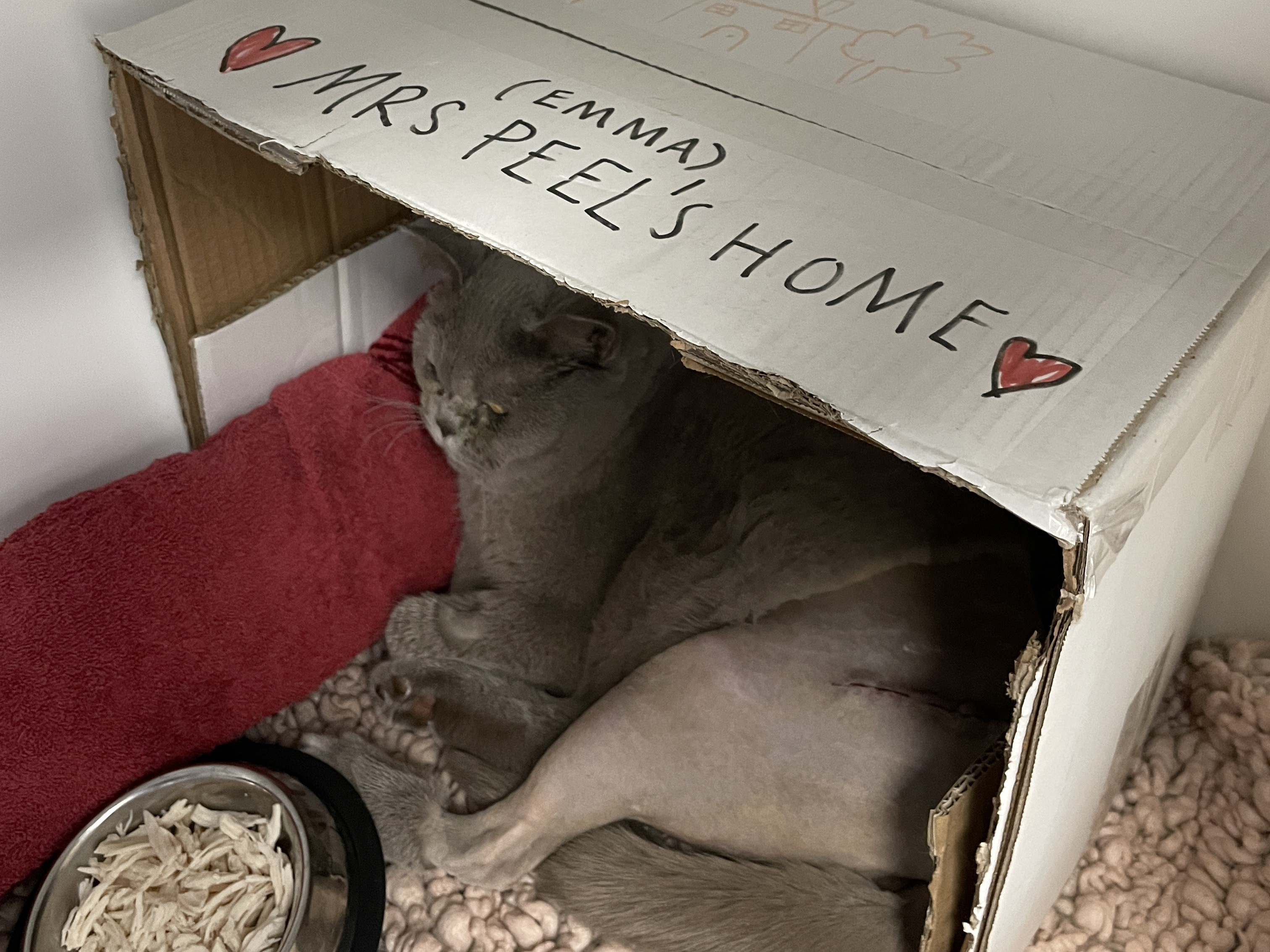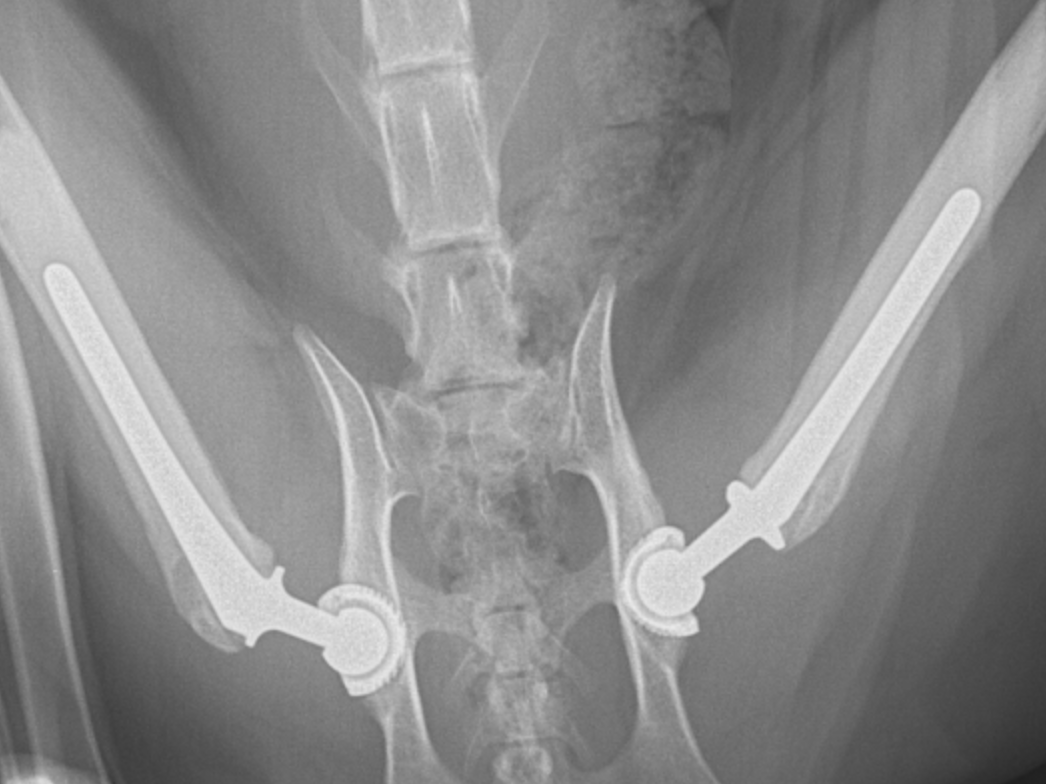Mrs Peel (affectionately known as Emma) is an affectionate lilac British Shorthair who was referred to us as a tertiary referral with a diagnosis of bilateral femoral capital physeal fractures (slipped capital femoral epiphyses) at the age of 19 months.
Her owners had noticed that she was reluctant to jump up and she cried when being picked up. Slipped capital femoral epiphyses is a pathological condition that we recognise in young large breed cats such as British Shorthairs and Maine Coons. However, Emma was very unusual as the problem is usually seen in castrated male cats. The problem is also seen in humans – usually adolescent inactive teenage boys.

Mrs Peel (affectionately known as Emma) is an affectionate lilac British Shorthair who was referred to us as a tertiary referral with a diagnosis of bilateral femoral capital physeal fractures (slipped capital femoral epiphyses) at the age of 19 months.
Her owners had noticed that she was reluctant to jump up and she cried when being picked up. Slipped capital femoral epiphyses is a pathological condition that we recognise in young large breed cats such as British Shorthairs and Maine Coons. However, Emma was very unusual as the problem is usually seen in castrated male cats. The problem is also seen in humans – usually adolescent inactive teenage boys.

The options for treatment was discussed and they included femoral head and neck excision and total hip replacement. To give Emma the best long term outcome it was decided to perform bilateral hip replacements, staged six weeks apart. The surgery was performed by Sorrel Langley-Hobbs, Professor of Feline Orthopaedics and all went very well. She was strictly managed at home after surgery ensuring that her activity was restricted to minimise the risk of complications. Emma is now over one year post surgery and is doing very well!
Langford Vets have been offering total hip replacements to cats and dogs for the last ten years. We now have four ECVS and RCVS Specialist Orthopaedic Surgeons who are certified and regularly perform the procedure. In the last year alone we have replaced over 100 hips!

The options for treatment was discussed and they included femoral head and neck excision and total hip replacement. To give Emma the best long term outcome it was decided to perform bilateral hip replacements, staged six weeks apart. The surgery was performed by Sorrel Langley-Hobbs, Professor of Feline Orthopaedics and all went very well. She was strictly managed at home after surgery ensuring that her activity was restricted to minimise the risk of complications. Emma is now over one year post surgery and is doing very well!
Langford Vets have been offering total hip replacements to cats and dogs for the last ten years. We now have four ECVS and RCVS Specialist Orthopaedic Surgeons who are certified and regularly perform the procedure. In the last year alone we have replaced over 100 hips!



